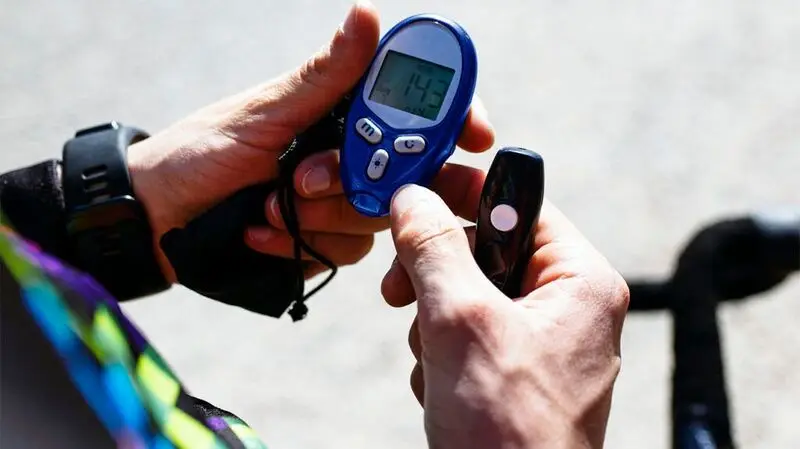- A new study published by Swedish researchers shared results of the clinical trial of a new drug that aids weight loss in people with type 2 diabetes and obesity.
- The medication is taken orally and has a different method of activation compared to the popular GLP-1 drugs.
- The new drug works through skeletal muscle metabolism, which the researchers say preserves muscle mass during weight loss.
Millions of people in the United States have
Muscle mass loss can cause a loss of strength and slow metabolism. Osteoporosis is also a concern when losing muscle mass, especially in older people.
Researchers affiliated with the Karolinska Institute and Stockholm University, both in Sweden, have developed a new drug that treats type 2 diabetes and obesity without impacting muscle mass.
They recently conducted an initial phase 1 clinical trial to determine how well humans tolerate the drug.
The findings appear in the journal
GLP-1 drugs, including the popular semaglutide medications Ozempic and Wegovy, work by reducing hunger signals in the brain and slowing gastric emptying. While these drugs aid in weight loss, some
Swedish researchers developed a new drug in tablet form that activates metabolism in the muscles. In animal trials, it avoided the muscle loss side effect of GLP-1 drugs.
Muscle tissue is metabolically active, so it burns more calories at rest than fat. When someone loses muscle during weight loss, this causes their resting metabolic rate to slow, which can make it tough to continue losing weight or maintain weight loss.
Muscle also helps regulate blood sugar by absorbing glucose from the bloodstream. Losing muscle can make blood sugar harder to control and worsen insulin resistance.
The new drug is based on a beta-2 molecule. Beta-2 medications can cause an
After conducting animal trials with the medication, researchers moved to their first trial involving humans to see how well they tolerated the medication. The trial consisted of 48 healthy people and 25 people with type 2 diabetes.
Both groups took the 2.5 mg tablet once daily for 28 days. The scientists tracked various health metrics from the participants including heart rate and blood pressure.
Both healthy participants and participants with type 2 diabetes were able to tolerate the drug well overall.
The researchers noted that a side effect of the drug caused “a mild and transient reflex-driven increase in heart rate” early in the trial.
This side effect did not persist by day 28 of the trial, and the authors said there was no significant difference in the heart rate or blood pressure between the groups.
The authors said one participant had a severe adverse event related to the drug. However, the researchers noted that it occurred in “a patient with preexisting cardiac abnormalities that resolved without complications, and its connection to the study drug remains uncertain.”
The participants all had plasma levels consistent with being at a therapeutic level for the medication at the end of the trial. The researchers found this reassuring since it showed that participants were taking the medication as prescribed and validated the heart metrics recorded.
Since this phase of the trial was successful, the next step is a longer clinical phase 2 trial. This trial will see how the drug affects people with type 2 diabetes and/or obesity in terms of muscle mass, glucose levels, and insulin sensitivity.
Mir Ali, MD, a board certified general surgeon, bariatric surgeon, and medical director of MemorialCare Surgical Weight Loss Center, spoke with Medical News Today about the trial.
“This seems to be a promising drug that could be a potential weight loss and diabetes medication,” said Ali, who was not involved in this study.
Ali noted that a clinical trial is needed comparing the medication to the GLP-1 drugs available. “Often, the real-world results vary significantly from initial studies,” he pointed out.
The doctor also touched on why a weight loss drug that does not cause muscle loss is so important:
“Preserving muscle mass is important in any kind of weight loss; the goal is to lose fat and not muscle. Losing muscle leads to weakness and a slower metabolic rate; more muscle means more calories are burned, even at rest; therefore, anything that helps preserve muscle is important.”
Maria Knöbel, MBBS, medical director of Medical Cert UK, similarly who was not involved in the recent research, also spoke with MNT about the trial results.
Knöbel said that, with her patients who lose weight, she has noticed that “a great decline in musculature levels occurs, and this increases their insulin resistance and further complicates their disease.”
“The trial of this drug is promising since it is a solution to this issue since it provides a means of losing fat without losing muscles,” she noted. “The saving of muscle mass with weight loss in these patients would be instrumental to the long-term control of glucose and would lead to better outcomes concerning their diabetes treatment.”






